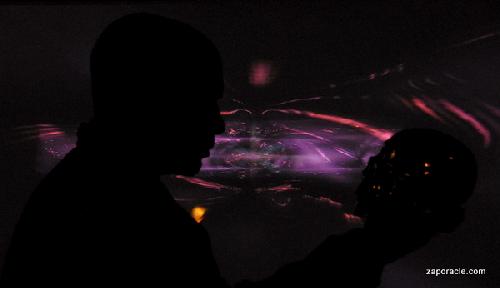“Don’t grow up. Grow forever.” — anonymous
Valuing prolonged adolescence sounds counterintuitive, especially since our culture abounds with examples of the worst sort of prolonged adolescence, such as aged folks desperately and pathetically trying to hold onto the things of youth. I have often quoted the Mary Renault character who said, “Man must make his peace with his seasons or the gods will laugh at him.”
It can be dangerous to cling to the Puer Aeternus, the archetype of the eternal youth. And yet there is also the creative, inspiring and metamorphic side of the prolongation of adolescence, a more hidden side of the paradox of prolonged youth that also needs to be honored.
From an evolutionary and developmental point of view, it is often an advantage to be a late bloomer. A general trend we see in nature is that the more complex the organism, the more potential it has for individuality and the longer it needs to develop. Baby spiders and scorpions come into the world already fully locked and loaded with everything they need to know to be spiders and scorpions. They have pre-installed operating systems of instincts allowing them to function as miniature adults from day one. Spiders and scorpions are not late bloomers. They don’t spend years working their way through identity issues and wondering what they’ll be when they grow up. Spiders and scorpions hit the ground running without the slightest doubt or insecurity about who they are supposed to be and what they are supposed to do. They are hard-wired and mechanical compared to more individualized creatures like us. They are prodigies of self-sufficiency, competence without training, and action without hesitation. Adolescence for spiders and scorpions doesn’t stretch for decades into middle age. To a person of painful self-consciousness, like J. Alfred Prufrock , to be an action-oriented exoskeleton seems an enviable thing,
“I should have been a pair of ragged claws
Scuttling across the floors of silent seas.”
But the lifestyle of ragged claws scuttling across the floors of silent seas may not be as enviable as J. Alfred imagines. For the late bloomer, the path of the fully formed man of action may seem enviable — the glamour of an instinct-driven life ensconced in an attractive exoskeleton, the imagined lives of square-jawed muscular types stepping out of glossy magazine pages and action films — and yet there is much to be said for being a mutating introvert, not yet identified with a glossy exterior on a path of unhesitating action.
More evolved animals take longer before they are ready to hit the ground running. But human development can also end too soon. During this era, we have a lot of prematurely jaded and cynical young. We also have a great many adults whose indentities and behavior patterns have been locked and loaded since middle or high school. They are not experiencing prolonged adolescence; they are fully-formed adolescent types prolonging themselves into stagnant adulthood.
However, some highly individualized mutants retain the metamorphic aspect of adolescence and have not fully formed. A commitment to consciousness and being metamorphic will keep them from rigidifying into finished adult forms even decades after biological adolescence. This type of late blooming has painful aspects but also developmental advantages. The longer and more labyrinthine the developmental path, the more individualized and novel the results may be.
The world is overpopulated with hollow folk whose identities hardened into exoskeletons early in life. These exoskeletal folks have already been locked and loaded with stereotyped habits of perception and behavior. They scuttle along the slimy, lowest common denominator floors of popular trends.
The world needs interiorized folk, the personifications of evolution’s attempts to experiment with the human form, those who live in prolonged states of metamorphosis.
Consider this an auspicious time to allow the metamorphosis of prolonged adolescence and honor the path of the late bloomer.
See: An Interdimensional Traveler’s Codex
Real People Suck — An Imaginary Person’s Manifesto
 ZapOracle.com home to the free 720-card Zap Oracle
ZapOracle.com home to the free 720-card Zap Oracle






